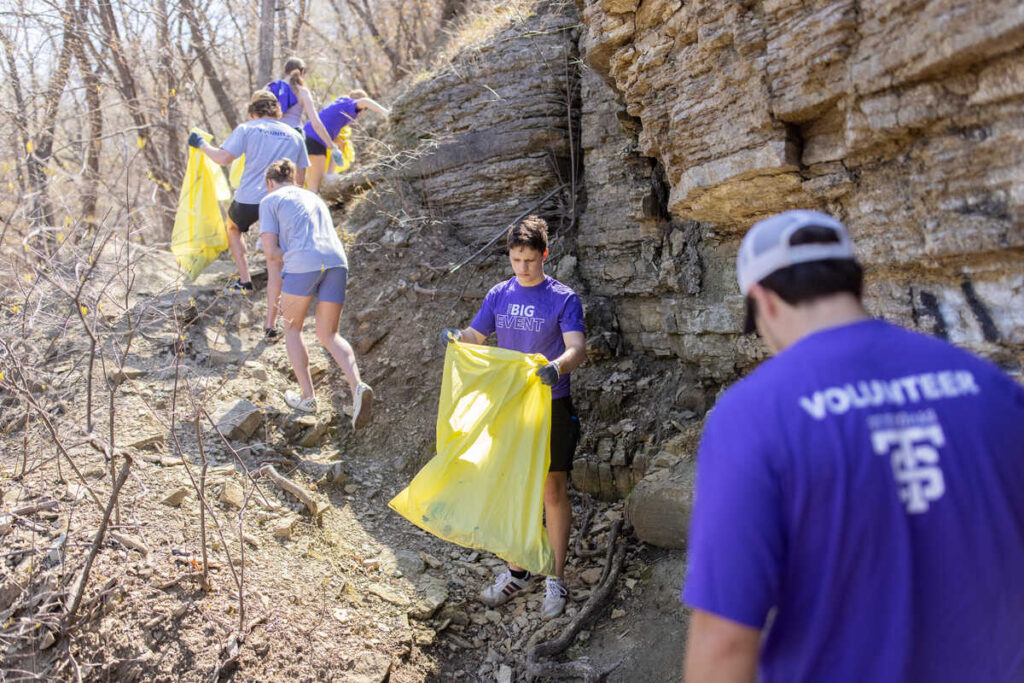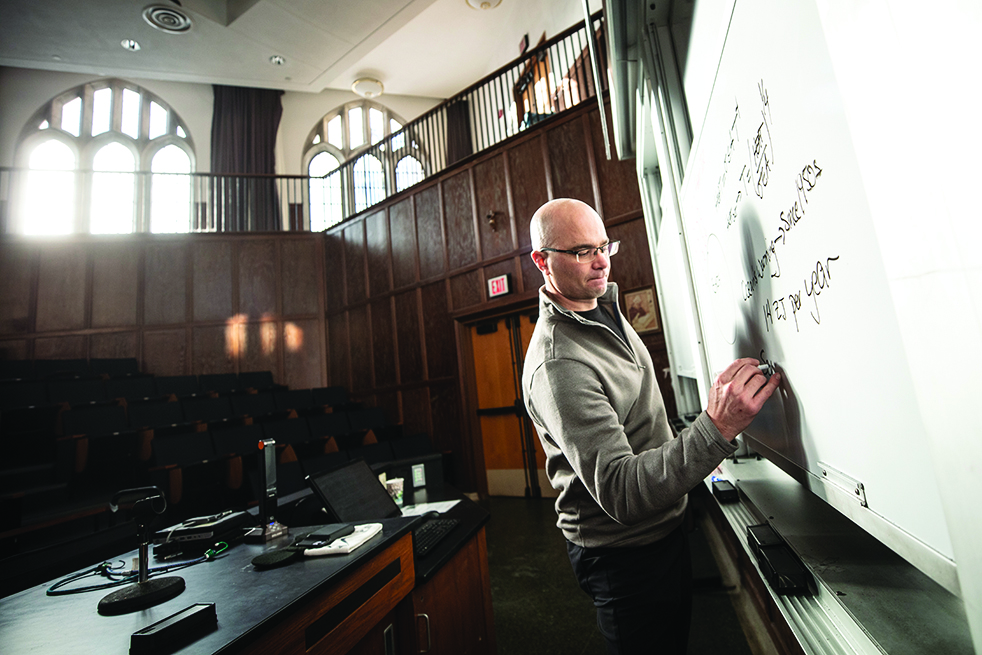The University of St. Thomas has received a STARS rating in recognition of its sustainability achievements from the Association for the Advancement of Sustainability in Higher Education (AASHE). STARS, the Sustainability Tracking, Assessment & Rating System, measures and encourages sustainability in all aspects of higher education.
The recognition signifies a large step for St. Thomas in recognizing how much work supporting sustainability has already been done, and where more work can continue to grow.
“Sustainability is core to our mission of advancing the common good. I am proud that St. Thomas achieved a silver rating in our first STARS assessment," President Julie Sullivan said. "This assessment reflects a strong campus-wide commitment to sustainability and outlines opportunities for improvement. It provides a useful framework as to how we can better infuse sustainability in our academic programs, student life, facilities and operations, public engagement, and administrative functions."
"This is not the job of one person, but of all of us. I am excited that our Sustainability Council will engage our campus community and partners to develop a university-wide action plan to establish goals and guide our work," Sullivan added. "In his encyclical, Laudato Si, Pope Francis focuses on the principle of Catholic Social Teaching, care for creation, and urges us to work together in caring for our common home. Let’s embrace this call at St. Thomas.”
St. Thomas' full report is available here.
"We are happy with the results of the STARS assessment," said Amir Nadav, assistant director of campus sustainability. "A silver rating recognizes that the university already has some meaningful sustainability accomplishments. The assessment allows us to benchmark the university’s performance relative to peer institutions and helps us identify potential areas for growth."
Nadav said in the next few months the Sustainability Council will review the results and begin a conversation about developing a strategic plan that identifies future goals and priorities for sustainability at St. Thomas.
"We anticipate that this will be a collaborative process in which the campus community provides input and helps to shape our future direction," he said.
St. Thomas reported on 67 individual “credits” within STARS. The university received the maximum number of points for 20 of those credits – some of those cover community partnerships, sustainability in undergraduate academic programs, inter-campus collaboration, immersive experiences like study abroad, electronics purchasing, support for underrepresented groups, and incentives for developing courses.
Some of the metrics that appear in the STARS assessment include:
- More than 80 percent of academic departments offer at least one course that includes sustainability.
- Fifty-two faculty members at St. Thomas have engaged in sustainability research in the past three years.
- Reduction in annual energy used by campus buildings of more than 20 percent in four years (between FY 13 and FY 17.)
- Reduction in annual potable water used on campus (i.e. primarily in buildings and not including irrigation) of nearly 18 percent between fiscal year 14 and fiscal year 17 (the difference between the two years is more than 11.5 million gallons of water.)
- One-hundred percent of expenditures on electronics are for products that are EPEAT Gold registered.
- Undergraduate students completed more than 45,000 community service hours in the past year.
St. Thomas recently installed four specialty recycling containers across campus for items such as CFL bulbs, batteries, electronics, ink, toner and plastic items.
STARS Framework
With more than 800 participants in 30 countries, AASHE’s STARS program is the most widely recognized framework in the world for publicly reporting comprehensive information related to a college or university’s sustainability performance. Participants report achievements in five overall areas: 1) academics 2) engagement, 3) operations, 4) planning and administration, and 5) innovation and leadership.
“STARS was developed by the campus sustainability community to provide high standards for recognizing campus sustainability efforts,” said AASHE Executive Director Meghan Fay Zahniser. “St. Thomas has demonstrated a substantial commitment to sustainability by achieving a STARS Silver Rating and is to be congratulated for their efforts.”
Unlike other rating or ranking systems, this program is open to all institutions of higher education, and the criteria that determine a STARS rating are transparent and accessible to anyone. Because STARS is a program based on credits earned, it allows for both internal comparisons as well as comparisons with similar institutions.







